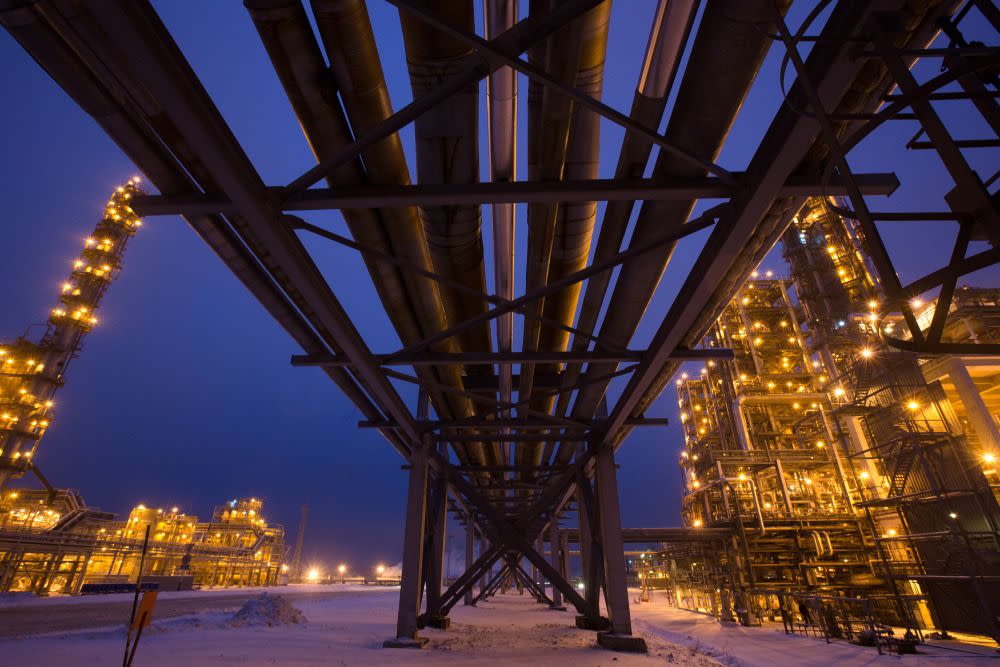
(Bloomberg) — Group of Seven officials are laying the groundwork for leaders to potentially discuss the introduction of a price cap on energy imports from Russia, in a bid to limit revenue for President Vladimir Putin and rein in prices, according to people familiar with the matter.
Most Read from Bloomberg
Lead negotiators for G-7 member states have been exploring the mechanism as part of preparations for the summit in the Bavarian alps in Germany on June 26-28, said the people, who asked not to be identified talking about private conversations.
Putin’s invasion of Ukraine in late February has upended Europe’s ties with Russia and exposed its high level of energy dependence on it. It has forced a rapid recalibration including moves to ensure supply from elsewhere before the next winter when demand traditionally spikes for household heating.
The use of a price cap mechanism on Russian energy has been championed by Italian Prime Minister Mario Draghi but remains problematic among some other states, given concerns it could distort markets or risk retaliation. Moscow already fired a warning shot in that regard this week with cuts in supply to countries including Germany, Italy and France, right as the leaders of those nations visited Kyiv to support Ukraine’s bid for candidacy to join the European Union.
Others are concerned that Moscow could simply find new buyers if not enough countries join a price cap. The topic is not yet on the official summit agenda, the people said. The G-7 is made up of the US, UK, Germany, France, Italy, Japan and Canada.
A price cap would set an upper limit on imports of gas or oil or both from Russia, which would be imposed unilaterally by each participating country and prevent Russia selling at a higher price. For European nations, it’s also a way to potentially defray inflation driven by energy prices.
While diplomats are discussing the possibility of applying the mechanism to both oil and gas, talks on oil are gaining more traction, according to two of the people.
Draghi discussed the matter with President Joe Biden during a visit to Washington in May, when the Italian prime minister also spoke publicly about creating a “cartel” of oil buyers. Draghi told reporters on Thursday that Russia was cutting gas supplies by 15%-30% but prices have increased the same amount, and “Italy’s initiative to propose a cap on gas prices is gaining traction in this is context.” An Italian government spokesman had no comment on whether it would make it onto the G-7 summit agenda.
A senior French official said they are looking at all proposals that would maintain pressure on Russia and lessen the economic impact the war in Ukraine is causing.
Draghi also said Moscow’s claims that supply cuts were not deliberate, but rather due to technical glitches, were “lies.”
G-7 nations and the EU have agreed to phase out Russian oil imports. Earlier this month, US Treasury Secretary Janet Yellen said talks on setting up a buyers group were “extremely active.”
“There would need to be a reasonably large group of countries that would go along with it, and it would be necessary to create such a coalition,” Yellen said.
Capping gas prices remains a more problematic option than oil as some EU nations remain highly dependent on Russian supplies and there are no plans to ban imports any time soon. Some of those countries are concerned that Moscow could respond by halting exports. European politicians have already accused the Kremlin of using gas for political ends.
Other ideas to curb Moscow’s income, such as a ban on providing insurance and shipping services to move Russian oil anywhere in the world have so far made less headway amid worries it could simply squeeze prices even higher, according to the people.
(Updates with official French comment in the ninth paragraph.)
Most Read from Bloomberg Businessweek
©2022 Bloomberg L.P.




